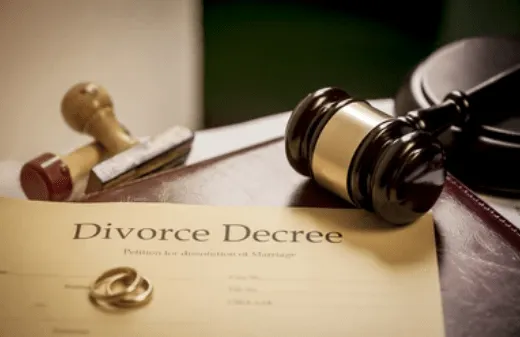When spouses go their separate ways in North Carolina, they must first reconcile a number of complex issues before they will be granted a divorce. One of these is how they will divide the assets and debt they acquired while they were married.
In North Carolina, marital property division is done by “equitable distribution.” While rarely an even split, this method is designed to be fair to both parties while taking a number of factors regarding the couple’s situation into consideration.
Understanding How Equitable Distribution Works
Unlike community property states, where marital property is owned equally by both spouses and must be divided equally at the time of divorce, equitable distribution uses a different method of deciding what is fair considering each couple’s unique circumstances.
While equality is a starting point, the court will then consider many variables when determining what is fair on a case-by-case basis.
What Property Will Be Divided?
When married couples separate, their property will be classified into marital and separate property.
Marital property is anything earned or acquired while the couple was married until the date of their separation. Marital property is subject to division in a North Carolina divorce.
Furthermore, property will also be considered divisible under North Carolina law if
- There was an appreciation or devaluation of marital property after the date of separation unless it was the result of post-separation actions of one spouse.
- It was property received after the separation that was the result of efforts by either party before the separation, such as commissions, bonuses, or contractual rights.
- It was passive income generated by marital property after the date of the separation.
- It was a passive increase or decrease in marital debt after the separation.
Conversely, separate property is generally anything earned or acquired before the marriage, after the date of separation, or gifts to or inherited by one party that remained solely owned by that spouse. Separate property that becomes commingled with marital property during the marriage may be considered marital property by the court and subject to division in the divorce.
Schedule your free meeting with our team today to see if our Lawyers can help you.
The Process for Dividing Marital Property in North Carolina
When it is involved in property division matters in a divorce, the court takes three steps in determining what is fair to both parties.
- The court will identify any property and debt owned by both parties and then classify whether it meets the definition of marital or separate property.
- The court will then determine a net value for the marital estate as of the date of separation. This is generally the market value of the property minus any debts.
- The final step is the court’s ruling on fair distribution. In the distribution phase, the court weighs many different factors when determining an equitable split between both parties.
What Factors Does the Court Consider in the Distribution Phase of Property Division in North Carolina?
Once marital property has been identified, classified, and valued, the court will then aim at a fair distribution based on the circumstances of the marriage and each party’s needs.
While the court begins with a presumption of equal or even distribution of marital property in North Carolina, it has great discretion in how the division can be more equitable. Consequently, the court will typically consider many of the following factors in its determination of what is “fair.”
The Duration of the Marriage
While longer marriages tend to result in a more equal division of a couple’s marital property, in shorter marriages, the court may aim to return both parties to their pre-marital financial state unless there is a pre- or postnuptial agreement in place.
The Age and Physical and Mental Health of Both Spouses
The physical and mental health of each spouse can affect earning potential and their ability to maintain marital assets. Consequently, age and health will be considered by the court when making property division determinations.
The Income and Separate Property of Both Spouses
The court will look at the current income and property of each spouse, aiming to ensure that both parties can maintain a reasonable standard of living post-divorce. This will include evaluating both spouse’s earnings, assets, or inheritances.
The Debts and Liabilities of Both Spouses
The court will also consider each party’s debts and liabilities to ensure that one spouse is not unfairly burdened with most of the marital debt.
The Needs of the Custodial Parent
If spouses have minor children, the court may allocate more assets to the primary custodial parent to ensure the child’s needs are met.
Contributions to the Marriage
The court will consider the value of each spouse’s efforts in building the marital estate, including financial and non-financial contributions, such as child-rearing and homemaking, alongside monetary contributions.
Future Pension and Retirement Benefits
The court will aim to divide future pension and retirement benefits fairly between both spouses while also considering the contributions made during the marriage.
Potential Tax Consequences to Each Spouse
The court will consider any tax implications of the property division to ensure neither spouse faces an undue tax burden.
Acts of Marital Misconduct
While North Carolina is a no-fault divorce state, and misconduct will not be considered grounds for divorce, the court will consider economic misconduct when making property distribution determinations.
Click to contact our family lawyers today
Are There Benefits to Negotiating a Property Settlement Agreement Outside of Court in North Carolina?
Reaching a property settlement agreement outside of court can offer numerous benefits for divorcing couples in North Carolina. A negotiated agreement will allow for a more personalized property division that meets both party’s needs and greater control over the outcome.
While the court will still have to approve a negotiated property division agreement, it will typically do so if the agreement seems fair. For spouses attempting to negotiate their own property settlement agreement, it is critical to get legal representation to ensure that the property division is fair and equitable under North Carolina law.
Schedule a call with one of our client services coordinators today
Getting Skilled Legal Assistance From an Experienced Charlotte, North Carolina Family Law Attorney
Divorce is an emotionally and financially complicated process, and the division of marital assets and debts during your divorce can significantly impact your and your family’s financial future. It’s crucial that you have someone on your side who knows North Carolina law and equitable distribution rules, can correctly and comprehensively identify, classify, and value your marital property, and can negotiate on your behalf and ensure you get what is rightfully yours during the property division phase of your divorce.
At Melone Hatley, P.C., our highly experienced Charlotte, North Carolina family law attorneys are dedicated to our clients’ rights at each step of their divorce process. If you are navigating a divorce in Charlotte, North Carolina or the vicinity, we are here to help. Call us toll-free at (877) 812-8628, our Charlotte office at (980) 281-9677, or contact us through our online contact form to schedule a free consultation.
Schedule a call with one of our client services coordinators today.




